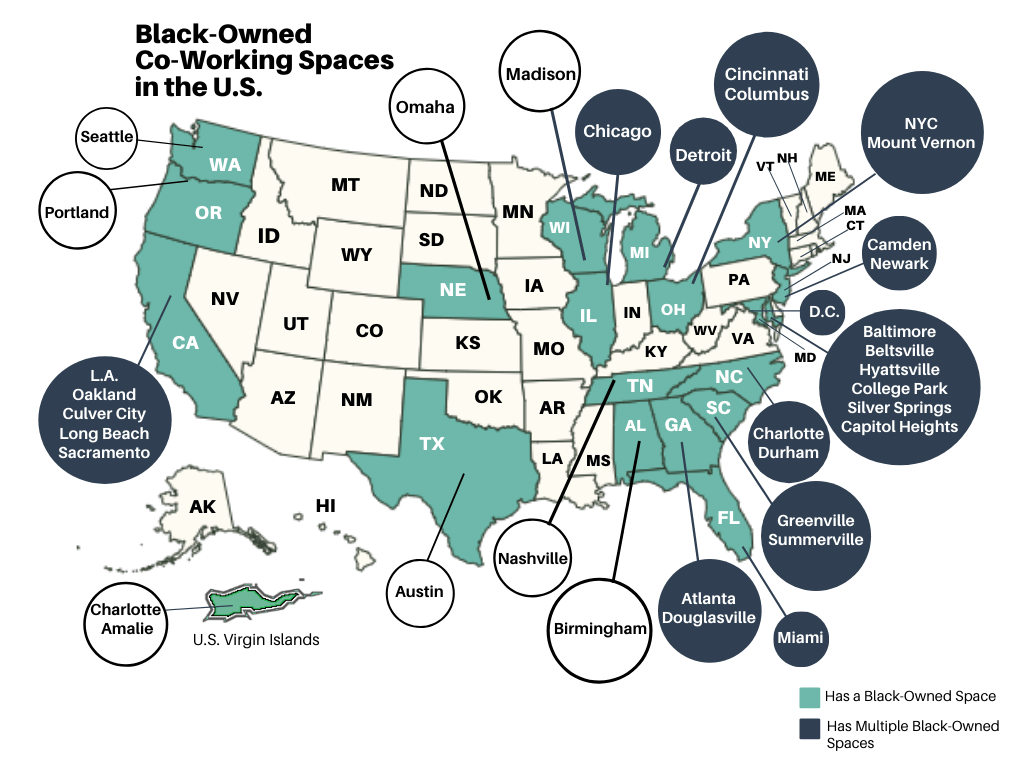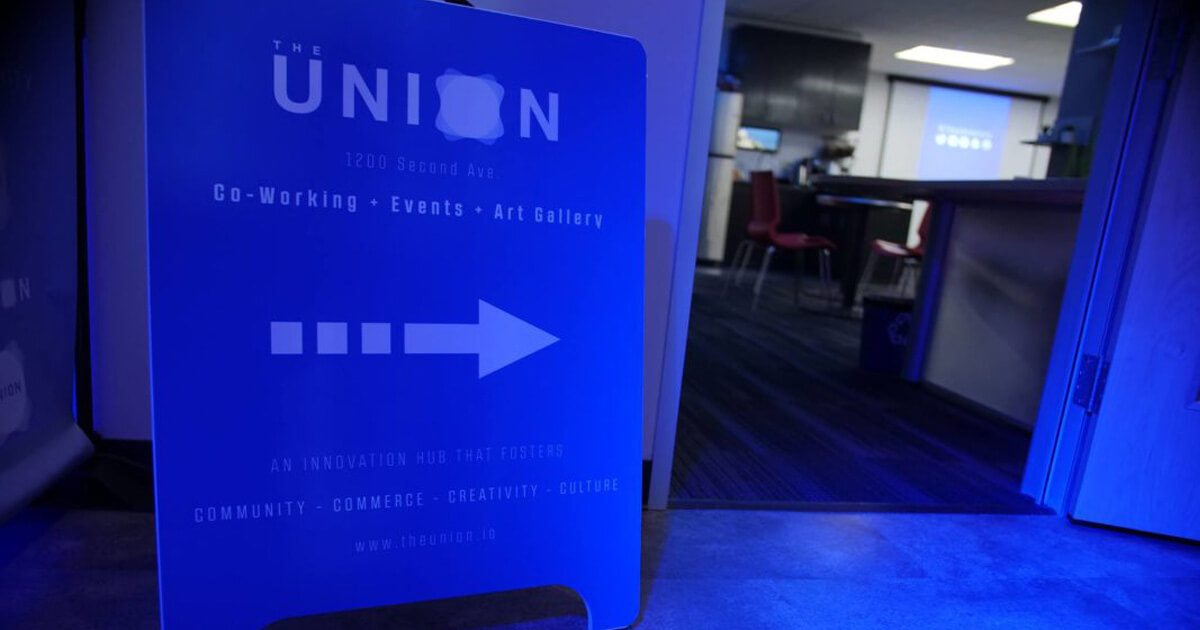When we released the first database of Black co-working spaces across the nation back in 2018 in partnership with VICE, we’d manage to identify just 55 spaces in a sea of 4,000 promising communities, connections, and safe space for innovators to build the next big thing. That number has since swelled to over 70 identified spaces helmed by Black operators.

The map above illustrates the location of black co-working spaces across the United States. The data is exclusively compiled by ThePLUG. Across the country, a total of 71 properties were sourced. Out of these, 6 locations are no longer operating. The map above only highlights co-working spaces currently in operation. The founders of several locations have marketed their properties to cater to either People of Color or Women.
Despite this segmentation, because the owners of these co-working properties are Black, they remained marked on the map. The last two years have seen a growth trajectory across the south and northeast, including the closure of a few co-working spaces that decided against competing the WeWork machine and turn their attention to other matters, building profitable, and scalable businesses. According to the 2019 Global Coworking Survey, the share of profitable coworking spaces has remained at roughly the same level, with just 43% of all coworking spaces generating a direct profit from their operation. One-third of spaces operate at break-even point, whereas every fourth coworking space continues to operate at a loss.
The struggle was certainly real for former operators like Emile Cambry who’d launched Blue Lacuna coworking space in Chicago back in 2013. Up until 2018, Cambry’s team at Blue Lacuna ran upwards of 100 classes per month, community events, mentor programs, and more out of their space onCanalport Ave street. While a significant point of visibility within the local tech community, maintaining and keeping the business afloat was an ongoing fight.
There was lots of borrowing money and begging Peter to pay Paul and keep the momentum, shared Cambry referring to the constant ups and downs of covering monthly rent and maintenance through a combination of tenants, grants, low-interest loans, and sometimes just a hope and a prayer. As a small nonprofit, Cambry saw the signs of expansion as WeWork increased its offices across the city.
It takes a lot more work than you can think to do community economic development, it’s not something you can do by just being passionate. It’s really about being able to fend off competition, he explained. Having decided to get out of the coworking space business and focus on higher-growth, scalable solutions, Blue Lacuna was transferred to Ignite Technology Innovation Partners in 2018, a Black-owned firm, who currently operates the space. Cambry and his wife and business partner Kelley relocated to New York City shortly after to launch Blue Studios, an online STEM-training platform connecting students to top-tier teachers and instructors.
For operators like Arif Gursel, owner of The Union in Seattle, Washington, he had to think quickly about developing a coworking business model that wouldn’t require him to go broke when tenants canceled memberships or other coworking spaces were able to offer incentives he didn’t have the resources to subsidize. To curb additional costs, there’s no general manager, instead, the coworking space relies on creators taking care of the space, technology to manage entry and bookings, light scheduled maintenance, and a focus on community building and partnerships with entities like the local library and several community foundations.
We got smart on looking at our costs and started investing in new tools to meet the needs of growing podcasters, and media makers looking for spaces to create, explained Gursel. Reaching a break-even point last year with a new strategy to engage the city’s creative community, The Union now boasts a podcast studio and plenty of video and production tools makers can access throughout the day. There’s also a late-night membership plan for those needing space after work hours to work on their side hustle.
Though struggles abound for anyone operating a coworking space in the country today seeking the most viable business model and financing to fill in gaps as membership ramps up, the presence of Black operators continues to be significant in carving out a growing sector of the economy transitioning to consulting, and remote work. To view our full list of Black-owned co-working space, see our database here.








